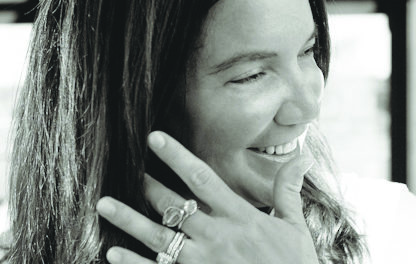I’ve always kept a running list of my character flaws and running late is something I’ve spent decades trying to wrestle into submission.
I came from a chronically late family. We would roll into Mass on Sundays and slink into the back row of shame. That wasn’t my fault of course but it’s a bad habit and one that became entrenched in my psyche.
I married an on-time kind of guy. He’s prone to tapping his watch when I come rushing in. I had children who believed I should not be the last one in the carpool line and grew up to send birthday cards that arrived on the day rather than a week later. It pleases me that my daughters were more like their dad, but it was also perplexing.
How hard could it be to be punctual? I would leave early but then . . . I don’t know what happens. I decide to take the longer route or go back to check if the iron is still turned on. I get to the restaurant early but sit in the car to finish reading a chapter in my book.
Perhaps it was due to an “optimism bias,” believing I have more time than I do or that I can finish a task more quickly. More likely, though, it’s a built-in propensity toward procrastination or a distorted perception of time. Those are real things, right?
As shameful as it was to be known for being the late one, it clearly was not enough to make me change my ways. Until it did.
One day, I arrived for a luncheon an uncharacteristically 30 minutes early and one of my friends was already there. She is a gentle soul with an endless reservoir of kindness and grace. I slid in the booth across from her and implored her to help me. She was always early, and I wanted to know her punctuality philosophy and how she achieved it.
She explained her belief that consistently keeping people waiting conveyed a lack of regard for their time and priorities. Ouch. Those words stung like a splinter in a finger and I vowed then and there to become a better person, one who showed up early. And, for a few decades, I did. In fact, I started turning into a punctuality evangelist, even tapping my own wrist when my husband was running late. Hard to know what list to place that trait on.
And then, a miracle happened! I moved to a town with a swing bridge. The first time I was caught on the bridge, watching its rust covered arms swing to the side, it seemed as if it was honoring the passage of ships through its waters. I was entranced. And also, late. There was my old flaw, back at the top of my list. I anxiously apologized to my new friend in my new town, but she just waved her hands at me to stop.
“Everyone here gets 20 minutes of grace,” she said, not ruffled or judgmental in the least. Random bridge openings are a fact of life in Beaufort, she explained, then asked if I saw the Osprey nest on the piling while I waited.
Decades apart and another sharp shift in perspective happened. Since then, I’ve begun to mentally assign people into one of two categories: those who furiously U-turn out of the slowing-to-a-halt lane and those who hope for a glimpse of the newborn Ospreys.
Could it be that my “issue” with time is part of what allows me to regard an unexpected pause in the hurried rhythm of life as a gift? I turn off the radio and silence my phone for 20 precious minutes of observation. I wish safe passage to the tall ships journeying under the span, take note of the tide and the clouds, and check on the Osprey family.
It was during one of those pauses (formerly known as a bridge delay) that I pondered the limited perspective of a character flaw list and how 20 minutes of grace is something that not only I can receive but can also extend.
There’s a lot to ponder, and then, when the light flashes green and the arms remake a bridge, I am on the way from island to town or back again.






